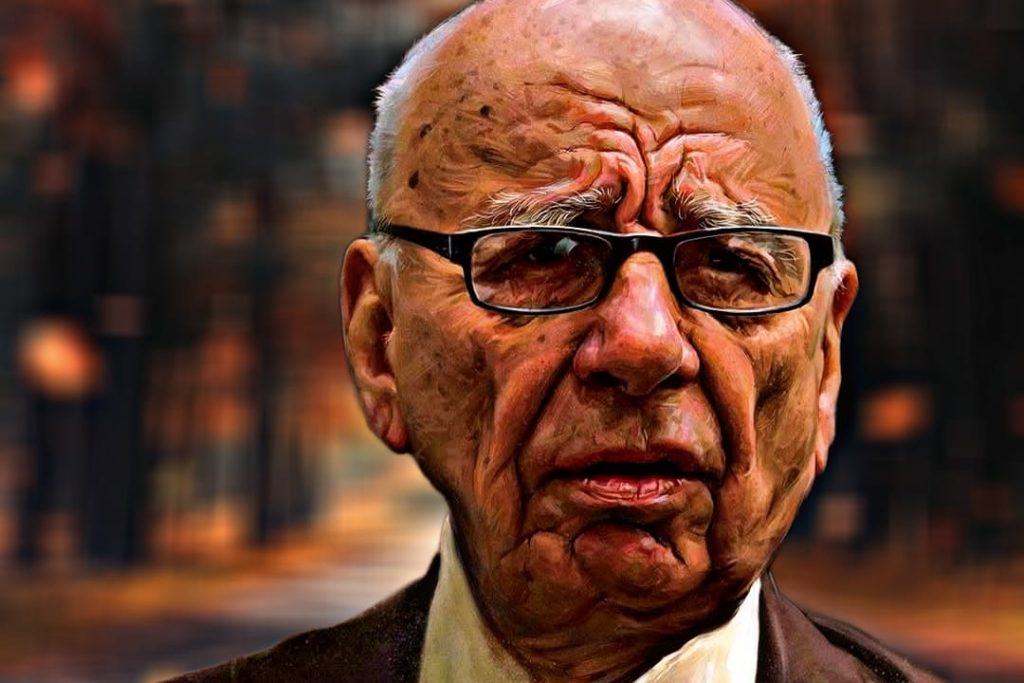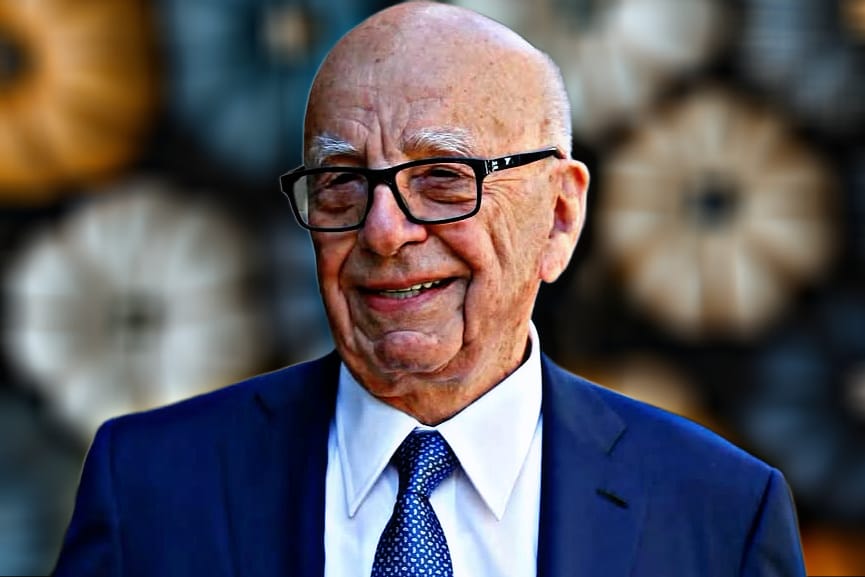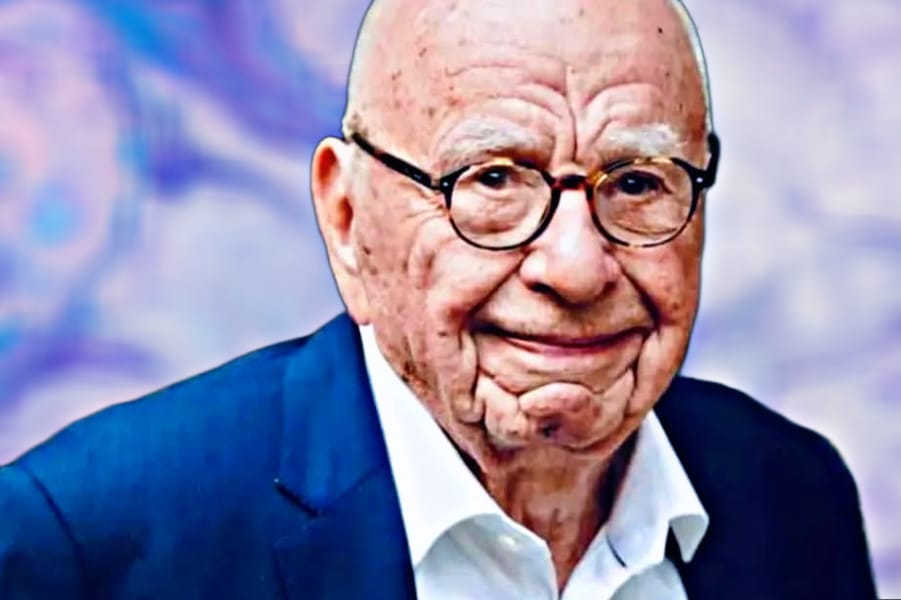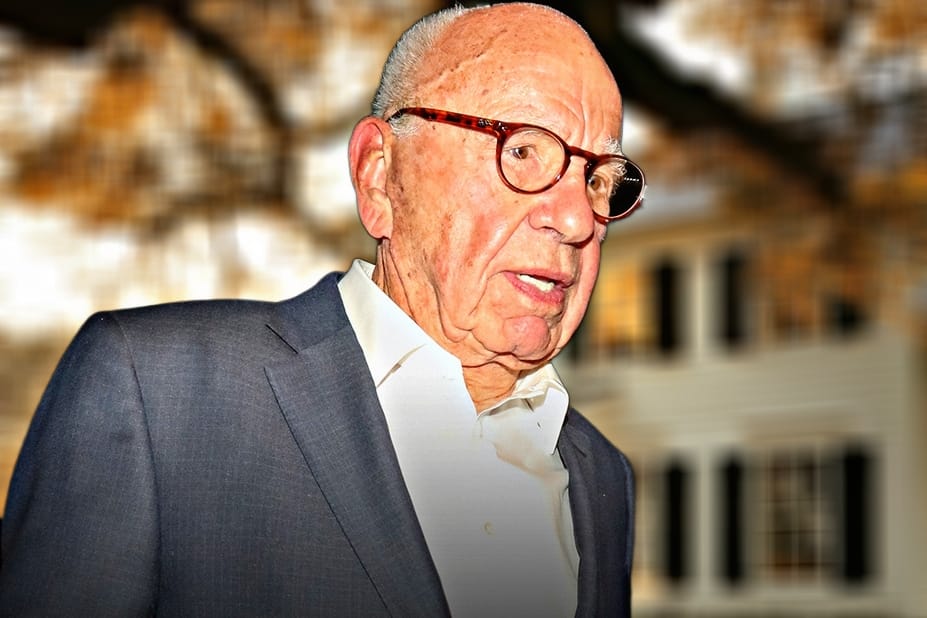Rupert Murdoch is one of the most influential figures in modern media, having built an empire that spans across continents and industries. From newspapers to television, and later, digital platforms, Rupert Murdoch vast influence on global media has shaped political discourse, cultural narratives, and public opinion in unprecedented ways. With a net worth in the billions and media properties that reach millions of people worldwide, Murdoch’s legacy is as vast as it is complex. However, his career is also filled with controversy, including allegations of media manipulation, unethical practices, and political influence.
This article explores the life, career, and controversies surrounding Rupert Murdoch, the media mogul who redefined how news is consumed, and examines the profound impact of his empire on the global media landscape.
Early Life and Entry into the Media World

Born on March 11, 1931, in Melbourne, Australia, Rupert Murdoch was the son of Sir Keith Murdoch, a respected newspaper executive and journalist, and Dame Elisabeth Murdoch, a philanthropist. Rupert Murdoch entry into the world of media began after he inherited his father’s newspaper, The News, following Sir Keith’s death in 1952. Murdoch, then a young and ambitious man, used the inheritance as a springboard for building an empire that would come to dominate the global media industry.
Rupert Murdoch first major acquisition was the Sunday Mail in Adelaide, which he purchased in 1954. Over the next decade, Murdoch expanded his media holdings across Australia, acquiring several major newspapers, including The Herald and Weekly Times. His style was aggressive, with a focus on sensationalist stories and hard-hitting headlines that appealed to a wide audience. This approach was not only innovative but also established Rupert Murdoch as a disruptor in the traditional, staid world of Australian journalism.
The Rise of News Corporation

In the 1960s, Rupert Murdoch began to look beyond the Australian market, eyeing opportunities in the United Kingdom and the United States. His international ambitions began with the acquisition of The News of the World in 1969, a tabloid newspaper that would become the cornerstone of Rupert Murdoch British holdings. By 1981, Murdoch expanded further into the UK market with the launch of The Sun, a tabloid that would become one of the best-selling newspapers in the country.
By the early 1980s, Rupert Murdoch growing portfolio led to the creation of News Corporation, a global media conglomerate that would eventually include a wide range of properties: newspapers, television stations, film production companies, and more. News Corp’s expansion was aggressive and often controversial, marked by Murdoch’s acquisition of major American properties like The New York Post in 1976, 20th Century Fox in 1985, and The Times in the UK.
One of Rupert Murdoch most significant moves was his push into television, particularly in the United States. In 1986, he launched the Fox Broadcasting Company, which would become a key player in American television, taking on established networks like ABC, NBC, and CBS. Fox’s approach to programming — often brash, politically conservative, and sensational — helped distinguish it from its competitors. The network’s success, which was solidified with major hits like The Simpsons and American Idol, allowed Murdoch to solidify his position as a media mogul on a global scale.
Rupert Murdoch Political Influence and Media Strategy

Rupert Murdoch’s media empire has been inextricably linked with his political views and ambitions. Murdoch’s newspapers and television networks have been consistently aligned with conservative political ideologies, particularly in the United States, Australia, and the United Kingdom. His media properties have been used not just to inform the public, but to shape political narratives, influence elections, and promote political candidates who align with his views.
Rupert Murdoch media outlets, particularly Fox News, have played a pivotal role in shaping American politics. Fox News, launched in 1996, quickly became a dominant force in conservative media. Under Murdoch’s leadership, Fox News became synonymous with right-wing politics, offering a platform for conservative figures and viewpoints, while often criticizing the mainstream media for what Rupert Murdoch and his team claimed was left-wing bias. Fox News’s aggressive coverage of issues like immigration, tax policy, gun rights, and foreign policy solidified its place as the go-to network for American conservatives, making it a key influence on the political discourse of the time.
In the UK, Rupert Murdoch influence has been similarly profound. His newspapers, such as The Sun and The Times, have been closely linked with the Conservative Party, using their editorial power to back political candidates and sway public opinion. Murdoch’s role in the Brexit debate and his influence on key political figures, such as Margaret Thatcher and Tony Blair, exemplify the extent to which Murdoch’s media empire has shaped political outcomes in the UK.
Rupert Murdoch media outlets were not just tools of journalism, but of political power. His ability to influence public opinion and political agendas has made him a significant figure in shaping policy decisions, particularly in countries like the United States and the United Kingdom.
Controversies: Phone Hacking, Ethics, and Allegations of Media Manipulation

While Rupert Murdoch’s empire has undoubtedly achieved great financial success, his career has been marred by numerous controversies and ethical concerns. One of the most significant scandals to affect his company was the phone hacking scandal involving the News of the World, a tabloid Murdoch had owned since 1969.
In 2011, it was revealed that journalists working for the newspaper had hacked into the phones of celebrities, politicians, and even victims of crimes like the 2005 London bombings. The scandal led to public outrage, several high-profile arrests, and the closure of News of the World in July 2011. Murdoch faced widespread criticism for his role in overseeing a company that allowed such practices to flourish, and many questioned whether he had been aware of the illegal activity within his company.
The phone hacking scandal not only damaged Rupert Murdoch personal reputation but also tainted the credibility of News Corporation’s UK operations, leading to the eventual breakup of the company into two entities: 21st Century Fox, focused on entertainment and media, and News Corporation, which maintained its newspaper and publishing holdings. Murdoch’s handling of the scandal, including his testimony before the Leveson Inquiry in the UK, raised questions about corporate responsibility, journalistic ethics, and accountability at the highest levels of media organizations.
Rupert Murdoch media empire has also been accused of fostering a culture of sensationalism, political manipulation, and ethical lapses. Critics argue that his outlets often prioritize profits over journalistic integrity, sensationalizing stories or spreading misinformation to attract more readers and viewers. For instance, Fox News has been accused of promoting fake news, particularly in its coverage of political events and public health issues like the COVID-19 pandemic. Murdoch’s role in shaping the narrative around these topics has had significant consequences for public trust in the media.
The Shift to Digital Media and Rupert Murdoch Ongoing Influence
As digital platforms like Google, Facebook, and Twitter increasingly began to dominate the media landscape, Murdoch’s company made a strategic shift toward online and digital media. News Corporation rebranded itself as 21st Century Fox and expanded its interests in digital news and entertainment platforms, including a significant stake in MySpace (which was later sold in 2011), and various digital entertainment assets. However, Murdoch’s efforts to make News Corp a leading player in the digital age were met with mixed results.
In recent years, Rupert Murdoch influence in the media world has continued to evolve with the rise of streaming services like Netflix and Amazon Prime. While his company has embraced the changing media environment, Murdoch’s empire is no longer the dominant force it once was. However, his influence remains potent through his ownership of major media outlets like The Times, The Sun, The Australian, Sky News, and Fox News.
Rupert Murdoch continued involvement with Fox News, in particular, underscores his enduring influence in the political and media spheres. While Murdoch himself has increasingly taken a backseat in the day-to-day operations of his companies, his presence continues to loom large over the editorial direction of his media outlets.
Legacy and Conclusion
Rupert Murdoch’s legacy is undeniably complex. On one hand, he revolutionized the media industry, creating a global empire that spans across television, film, newspapers, and digital media. His ability to harness the power of media to influence public opinion and shape political discourse has made him one of the most significant media moguls in history.
On the other hand, Rupert Murdoch career has been marred by ethical concerns, controversies, and scandals. His media outlets have often been accused of prioritizing sensationalism over truth, spreading misinformation, and manipulating public opinion for political gain. The phone hacking scandal, in particular, has left a permanent stain on his legacy.
Nonetheless, Rupert Murdoch’s impact on the global media landscape cannot be overstated. He remains a powerful figure whose influence continues to shape the way we consume news and information. His legacy is likely to be debated for years to come, but there is no denying his role in defining the modern media environment.
Rupert Murdoch’s story is that of a media titan who used ambition, innovation, and influence to build an empire that reshaped the media landscape. His legacy, however, remains divisive. As the world of media continues to evolve, Rupert Murdoch empire and the way it has changed the course of history will remain a subject of debate and analysis for years to come.

